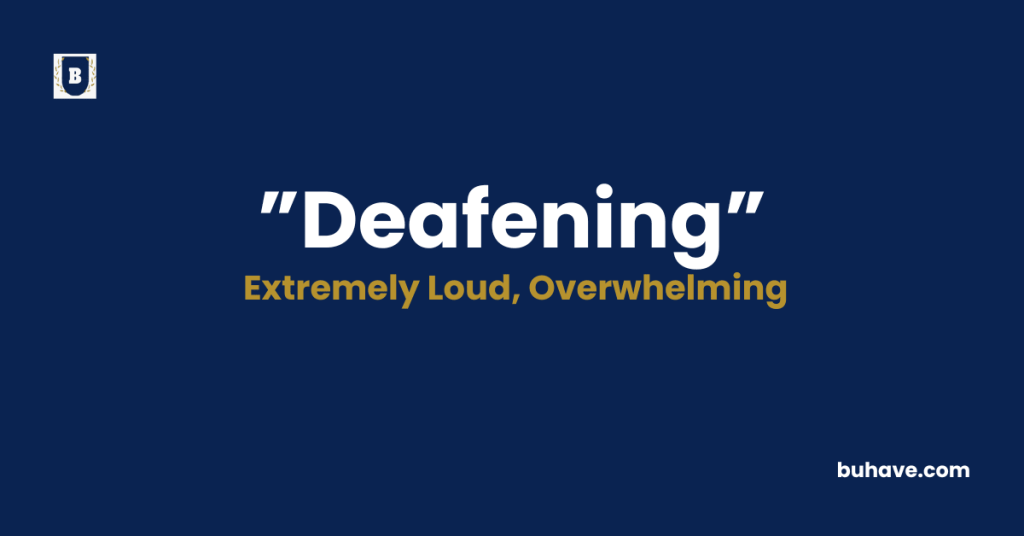The word Deafening (adjective) describes a sound that is so loud it seems to block out all other noise, sometimes even painful to hear. In this guide, you’ll learn the full definition, synonyms, antonyms, etymology, and real-life examples of how to use Deafening correctly in sentences.
Deafening Explained in Depth
A complete and detailed guide to the word Deafening including meaning, definition, examples, etymology, synonyms, and antonyms.
Meanings of Deafening
Deafening means extremely loud to the point where it overwhelms hearing or makes it difficult to hear anything else. It can refer to a literal noise or a metaphorical silence that is conspicuously loud by contrast.
Definition
Deafening refers to a sound so intense or overpowering that it seems to prevent one from hearing anything else. It may describe overwhelming applause, explosions, machinery, or even silence that feels unnaturally strong.
Etymology
The word deafening comes from the verb “deafen,” which is derived from Middle English deafen, meaning “to make deaf,” and ultimately from Old English def, meaning “deaf.” The -ing form came to describe a sound so loud it could metaphorically cause deafness.
Example Sentences
- The thunder was so deafening it shook the windows.
- He covered his ears as the deafening roar of the jet engine passed overhead.
- There was a deafening silence after the shocking announcement.
Deafening Synonyms
- Ear-splitting
- Thunderous
- Loud
- Blaring
- Roaring
- Explosive
- Piercing
- Overpowering
- Resounding
- Blasting
Deafening Antonyms
- Quiet
- Silent
- Hushed
- Muted
- Soft
- Peaceful
- Faint
- Whispered
- Calm
- Still
FAQs about Deafening
Here are some Frequently Asked Questions (FAQs) about the word “Deafening”
1. What does “deafening” mean?
It means extremely loud, often overwhelming or blocking out all other sounds.
2. Is “deafening” always about actual sound?
No, it can also be used metaphorically, such as in the phrase “a deafening silence.”
3. Can “deafening” describe applause or cheers?
Yes, it’s commonly used to describe overwhelming noise from crowds or celebrations.
4. Is “deafening” a negative word?
Not always—it depends on context. It can describe exciting energy or disturbing noise.
5. Is “deafening” used in formal writing?
Yes, it can appear in both formal and informal contexts, especially descriptive writing.

















